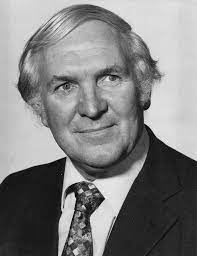Are we too late?

Former Exxonmobile senior scientist James Black has had a major role in climate change and its perception.
September 21, 2021
Yes. Well, pretty much. NASA, National Geographic and The IPCC all agree, we’ve lost. We’re past the threshold for reversing climate change. What we’ve been consistently warned of since 1896 has become inevitable. Don’t worry though; that doesn’t mean that this disaster is our fault, unless, of course, you’re one of the governing members of a corporation that has aided in the spread of misinformation and the blaming of individuals instead of the government and yourself, in which case, yeah, this is on you.
The truth is that individuals never had too much of a position in this war. The illusion that collectively the public can reverse climate change by using renewable products is simply untrue. This too is a fact spread by large corporations to take the guilt off of themselves and put it on others. A perfect example of this is Exxon Mobil.
In the 1970’s Exxon (now Exxon Mobil) Launched unprecedented research into understanding climate change. In their research they found that climate change, in fact, was a dire issue that they needed to get in front of. This fact was shown before climate change was an issue in the mind of the public, but instead of using this information (that they themselves produced) to properly adapt and plan to use renewable resources, Exxon used this information to properly understand how to cover it up. “In the first place, there is general scientific agreement that the most likely manner in which mankind is influencing the global climate is through carbon dioxide release from the burning of fossil fuels.” This was a report given in 1977 to Exxon’s management committee by their senior scientist James Black. It seems, however, that the executives of Exxon had a short memory because in 1988 when NASA scientist James Hansen announced to the public that global warming had already begun, Exxon was among the first to label this information as controversial. In 1989 Exxon aided in forming the Global Climate Coalition that spread misinformation that downplayed the severity of climate change. In 1998 they lobbied against the signing of the Kyoto Protocol (an international treaty to limit greenhouse gas emissions) in not only the U.S., but China and India as well, which just so happen to be the largest emitters of carbon to date.
The vicious lobbying of carbon emitters such as Exxon to inhibit positive change is what has truly killed the environment’s chances of being healthy once again. The leading oil companies spend nearly $200 million yearly to push back against policies attempting to prevent climate change, putting any initiatives to a halt. The truth of the matter is that it appears that the will of the people isn’t the highest priority. According to a study done by Pewresearch.org, an astounding 67% of Americans believe that the federal government should be doing more to reduce the effects of climate change, but this is not reflected in the legislation that ends up getting passed. It seems that in this case, the needs of the giant corporations are more important than those of the earth as a whole.
It’s hard not to become apathetic to the effects of climate change after learning how severely the deck is stacked against the Earth, but this article isn’t meant to do that. This should serve as a consolation of sorts. Though the effects that humans have imposed on our earth are irreversible, it is still possible to work to adjust to the new world we live in and try to slow the coming consequences as much as possible. Unfortunately, this doesn’t seem like it will be possible until the federal government pushes back against the interests of the selfish corporations and starts truly representing the will of its citizens. So yes, we have lost the war to climate change. But was it our fault and should we stop pushing for change? Not in the slightest.
Exxon Senior Scientist James Black









Will Howes • Sep 22, 2021 at 1:51 am
Based